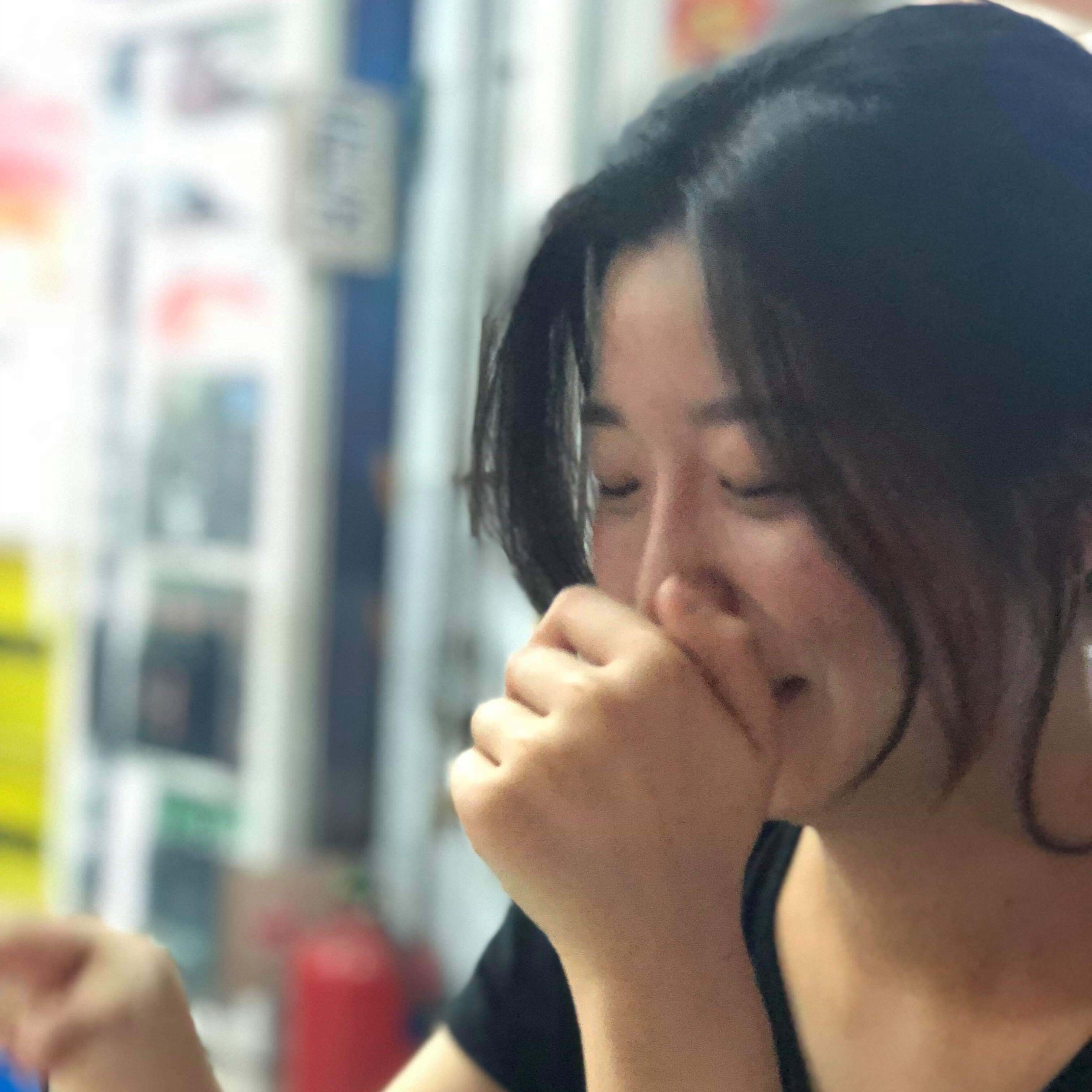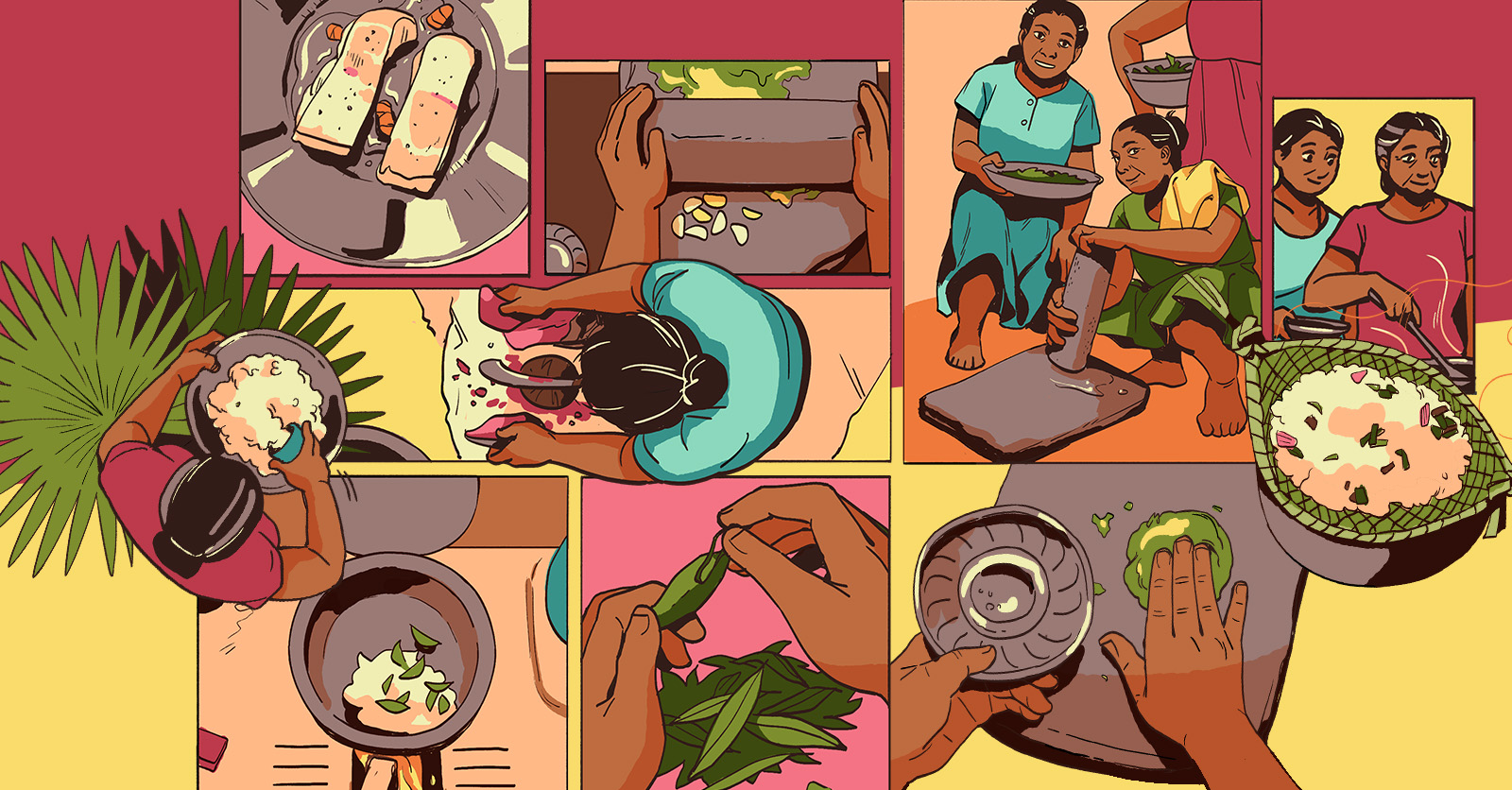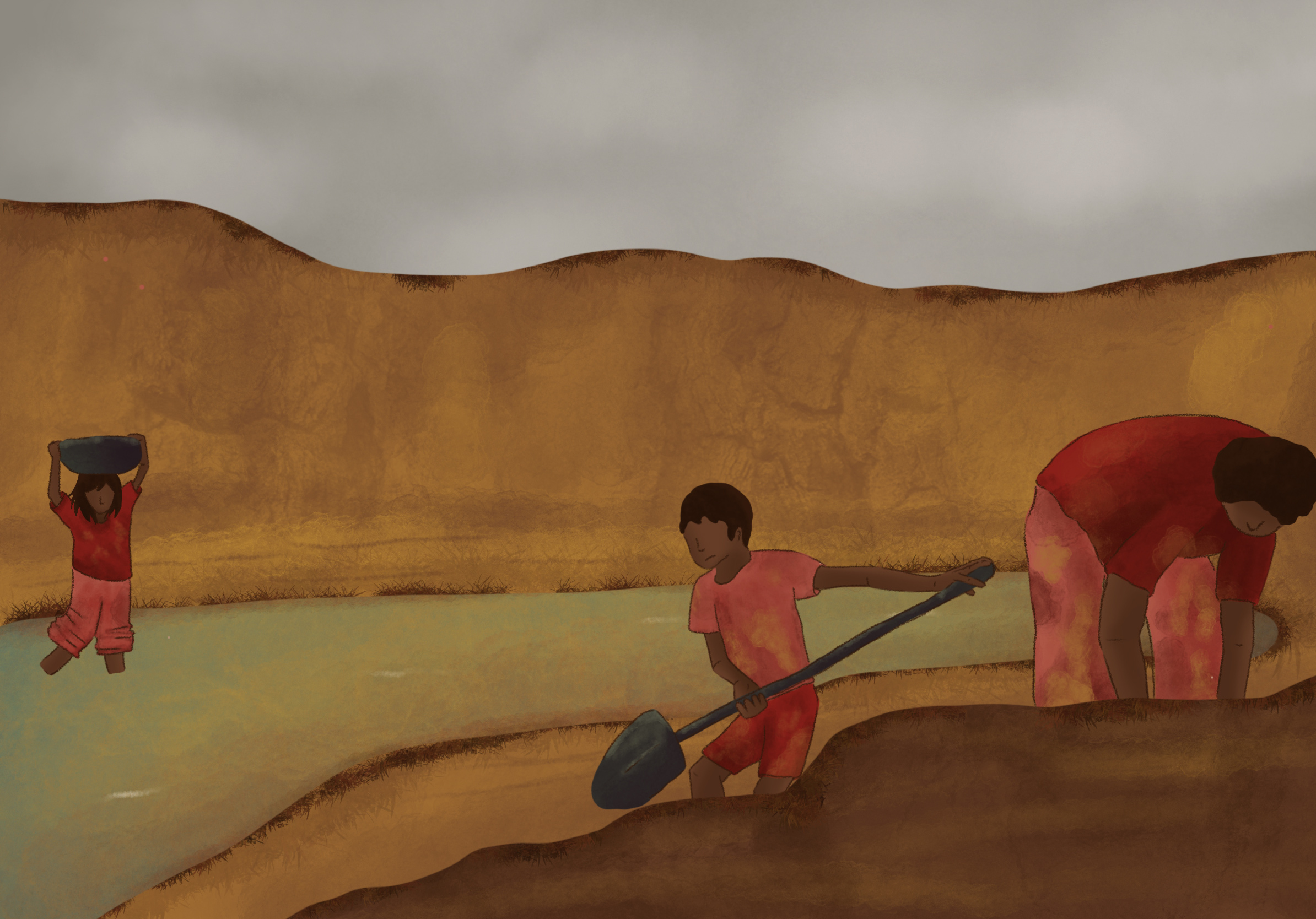
The Sabarimala Temple controversy
Menstrual taboo and gender equality in religion
by Hoon Hee LeeThe Sabarimala Temple sits at the heart of India’s debate on whether the law should forbid religious practices that discriminate against women. Many Hindu temples have barred menstruating women from shrines, but in 2018, the Supreme Court made a landmark decision to lift the Sabarimala Temple’s prohibition. Still, this has not stopped protestors forcibly blocking women from passing through its doors.
What drives the resistance to changing gender norms in religious practices, and what is at stake as the cultural silence around menstruation begins to fade?
Each year, more than 30 million pilgrims trek the Sabarimala mountain in Kerala, seeking the blessings of Lord Ayyappa. The Sabarimala Temple is dedicated to this beloved deity—Lord Ayyappa was the adopted prince of the Pandalam Dynasty and, according to legend, the son of Vishnu and Shiva. It attracts around 30 million pilgrims in one of the largest annual pilgrimages in the world. Pilgrims abstain from sex, alcohol, meat, and profanity for 41 days before climbing the temple’s holy steps.

Pilgrims walking through the forest to the Sabarimala Temple.
Until 2018, women of child-bearing age had been barred from entering the Sabarimala Temple on the grounds that menstrual blood defiles its sacredness. This decision was legally upheld by the Kerala High Court in 1991.
The Hindu belief about the impurity of menstrual blood draws from its mythology, in which Lord Indra, king of gods, incurred a curse for killing a Brahmin (Brahmahatya). Indra distributed the curse among the land, water, air, and women, marking the start of menstruation and childbirth for women.
As a result, menstruating women face numerous prohibitions in scripture: entering the kitchen or the temple, taking a nap, bathing, wearing flowers, having sex, talking loudly, and touching pickles are all prohibited.
This belief has clearly strengthened discrimination against women and period stigma. Experts often point out that period stigma directly impacts how girls and women manage menstrual hygiene. Besides various taboos and restrictions, menstruating women in different cultures can find it difficult to communicate necessary knowledge about menstruation. This leaves women and girls vulnerable to “period poverty”—the inability to access menstrual products such as sanitary pads and pain medications—and its real health consequences.
Women’s socioeconomic background—their access to education, wealth, and private spaces for changing pads—greatly affects their likelihood of contracting urogenital infections. This often creates a vicious cycle, in which poverty creates the conditions for poor health and vice versa. In the Beed district in Maharashtra, for instance, thousands of women undergo hysterectomy to stop their monthly bleeding in a bid to keep working each day at sugarcane plantations. Many suffer from serious side effects, as hysterectomy is usually a last resort surgery.
In 2006, the Indian Young Lawyers Association filed a controversial petition with the Supreme Court against the barring of women from the temple. After prolonged debate, the Supreme Court ruled that the ban violated the Constitution’s guarantee of the equal right to worship in 2018.
Public opinion in India over the matter has been split. While some celebrated the court’s decision as a major achievement for gender equality, others protested it as a violation of religious autonomy. Despite police escorts, individual women, including journalists and activists, failed to break through the wall of violent protestors blocking the entrance to the temple.
Three years before the verdict, a Sabarimala Temple representative commented, “There will be a day when [a] machine is invented to scan if it is the right time for a woman to enter the temple. When that machine is invented, we will talk about letting women inside.”
In response to this comment, young women and men posted photos of themselves holding signs with the phrase “Happy To Bleed” on Facebook. These protestors eschewed the norms of period shaming and gender discrimination as tools for maintaining the country’s patriarchal order.
In an open letter to the temple representative, the founder of the campaign, Nikita Azad, defended the sanctity of menstrual blood:
“The woman keeps the baby in her womb for about nine months, provides nutrition through her uterus to the baby, and gives birth to the baby through her vagina. Aren’t all the men who enter the temple product of the blood formed in their mothers’ uteruses?”
The #HappyToBleed student activists later enlisted a renowned human rights lawyer, Indira Jasing, to file a petition in 2016 against the temple’s discriminatory policy, once again demanding the Supreme Court’s attention.
Under the media spotlight, the Sabarimala Temple controversy took a political turn, becoming central to the campaigns of three key coalition parties during the 2019 Indian General Election.
The Left Democratic Front (LDF), led by the Communist Party of India (Marxist) and “progressive” in outlook, was the only party to embrace the Supreme Court’s verdict. The LDF organised a counterprotest against conservative protesters in 2019, with millions of women and men forming a human wall (Vanitha Mathil) stretching 620 kilometres from the temple.
Kerala is unique among Indian states for its leftist socialist leanings—and it was the world’s first state to democratically elect a communist party in 1957. The strong turnout in support of gender equality and justice in that state came as no surprise.
In contrast, both the United Democratic Front (UDF) and the National Democratic Alliance (NDA) took the opposing view. With the upper-caste Nair population and competition over Kerala’s Hindu votes in mind, the UDF promised legislation that would reverse the Supreme Court’s ruling.
In the 2019 Indian General Election, the UDF bagged 19 out of 20 seats, while LDF salvaged the last remaining seat. Some believe that the Sabarimala Temple issue contributed to the landslide victory, whereas others argue that sentiment against Prime Minister Narendra Modi motivated Keralans to vote for the Indian National Congress—the principal opposition party to the Bharatiya Janata Party (BJP).
Though the political debate touched on religious freedom and gender equality, it foregrounded the conflict between tradition and modern values such as gender equality. The BJP framed its opposition to the Supreme Court’s verdict as “a matter of age-old tradition accepted by society.” The BJP of Kerala, which aggressively incited protests, saw the issue as a "golden opportunity” to squeeze into a political arena traditionally dominated by the UDF and LDF.
But why has the BJP been so outspoken to make a political issue of the Sabarimala Temple’s ban?
The preservation of the temple’s rule against women’s entry embodies more than patriarchal values for the BJP. The party’s Hindu nationalist ideology (Hindutva) seeks to preserve tradition against the secularising force of law, and the Sabarimala Temple controversy was a crucial battleground in its grand narrative of a Hindu nation subject to Hindu moral codes.
The BJP’s rhetoric thus appeals more to tradition than to religious arguments themselves, and this shows up in its double standard on gender issues in other religions. When the High Court of Bombay lifted the ban on women’s entry into Haji Ali Dargah—a mosque and tomb dedicated to Saint Pir Haji Ali Shah Bukhari—BJP’s general secretary Shrikant Sharma welcomed rather than challenged the verdict.
As the debate around the Sabarimala Temple unfolds, the Supreme Court faces a larger challenge: the extent to which the law can intervene in religious affairs.
In January 2020, the Supreme Court responded to conservative petitions against its 2018 ruling by opening an investigation into gender discrimination in all religions practiced in India. This investigation will determine the constitutionality of various gendered religious practices, such as female genital mutilation and restrictions on women’s entry into mosques, dargahs, and agiaries.
Menstrual activists and NGOs in India have long talked about the dangers of period taboo and period poverty. The Sabarimala Temple controversy puts this issue under the spotlight, offering the public an opportunity to openly scrutinise both the cultural shame surrounding menstruation and gender discrimination in society.
As the Supreme Court deliberates, the fate of the Sabarimala Temple case remains unclear. But there is no doubt that the fierce public discourse around the temple has permanently altered the landscape of menstrual politics and women’s health.
As menstrual activists await the investigation’s verdict, no statement expresses the real stakes of women in this struggle better than Nikita Azad’s second open letter:
Hoon Hee was an intern at Kontinentalist. She dabbled in political science, philosophy and economics at Yale-NUS College. She wants to live in a world where people listen to each other’s stories.









